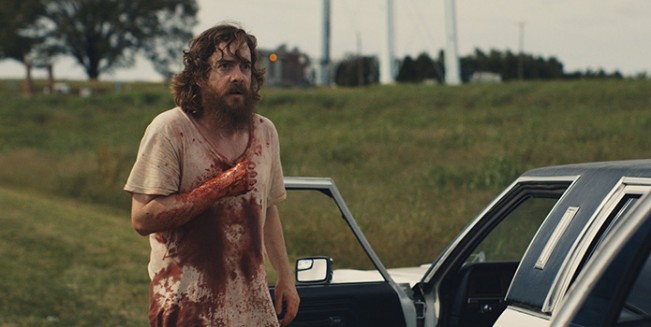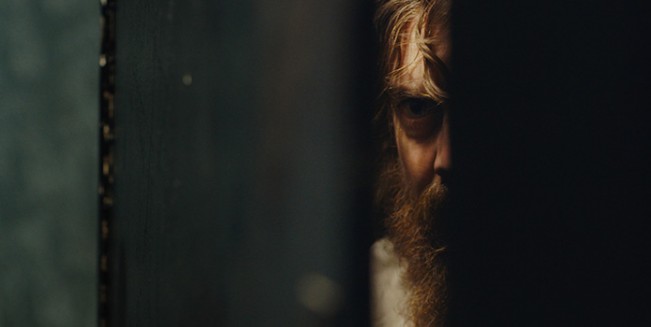By Jake Howell jake.howell@utoronto.ca
The Torontonian Reviews BLUE RUIN
“Did you just come out of Blue Ruin?” asked a breathless Toronto film programmer one day back in May. “No? What a really tight revenge thriller.”
He looked overwhelmed by what he had just seen.
Written, directed, and shot by Jeremy Saulnier (2007’s Murder Party), and on a successful Kickstarter budget to boot, the film is about as independent as they come. Fortunately, the quality of the end result transcends any stigmas or misgivings you may have about low-to-no-budget independent film, thanks to Saunter’s impressive triple-threat efforts.
As much as I love Quentin Tarantino—likely the authority of contemporary revenge films—some audiences may have found 2012’s Django Unchained bloated, with scenes that stretched long and indulgences that had a smaller payoff than we’d want.
Blue Ruin, on the other hand, clocks in at a crisp 92 minutes and is gripping for nearly all of them.
It’s unclear if knowing as little as possible is the ideal approach to experience Blue Ruin, but hearing it described as a “really tight revenge thriller” was plenty to pique my interest. Nevertheless: lusting for revenge, the vagrant Dwight (Macon Blair, Hellbenders) learns that a bad man has been released from prison. With only a dilapidated blue Pontiac and the last vestiges of his humanity, Dwight hits the road to close a chapter of his history.
There’s plenty more narrative for Saulnier to keep us guessing, but the set-up and ensuing narrative kinks are believable and devoid of contrivances. More importantly, Blue Ruin comes bearing zero frills attached: the action is streamlined and exciting, the comic relief is perfectly timed, and the lead-foot pace maintains its acceleration before peaking at a bloody climax. Think lean and mean—then add some laughs and surprises for good measure. There’s also a glimpse of commentary on U.S. gun culture, but it isn’t too heavy to outright hijack the film’s primary thrills. This is first and foremost a great story, and one that is told well.
Given how much solo screentime his character has, Macon Blair’s Dwight is especially taciturn, and the film becomes a character study via the facial expressions of a desperate man. The dialogue that Dwight does have, however, is delivered with the requisite depression you’d expect from the character, and the result is a sadness that earns our sympathy (and our winces, when things get gory). Blair, who also helped produced the film, should be commended for carrying such a physical role.
I must also praise Saulnier’s gorgeous cinematography—a directorial achievement in and of itself—but there’s a sequence with Dwight driving along a misty stretch of forest highway that has been embedded in my memory for quite some time now. The images are captured high up and far behind Dwight’s Pontiac from what must have been a camera mounted to a bus, and we get the feeling that he is driving into the unknown with palpable purpose. It’s a masterful shot, and it’s just one example of balanced and visually striking use of color, from the indelible blood stains on Dwight’s white shirt to the Pontiac’s blue tint whizzing past forest greens.
It should be enough to say that Blue Ruin is a top-notch vengeance thriller from start to finish, but its artistic merit is just as striking as its violence. When it was posted last year, Saulnier’s Kickstarter pitch assured the project was “a revenge film equally suited for art house cinephiles and die-hard genre fans,” and I can do nothing but agree with the highest of recommendations. The film now sits comfortably amongst my still-forming top-ten list of this year, but it’s not likely to be ousted by the end of December.


















Being a Marne veteran, kick ass revenge can be enormously gratifying. I await this films release in our Concord, NC
neck of the woods.